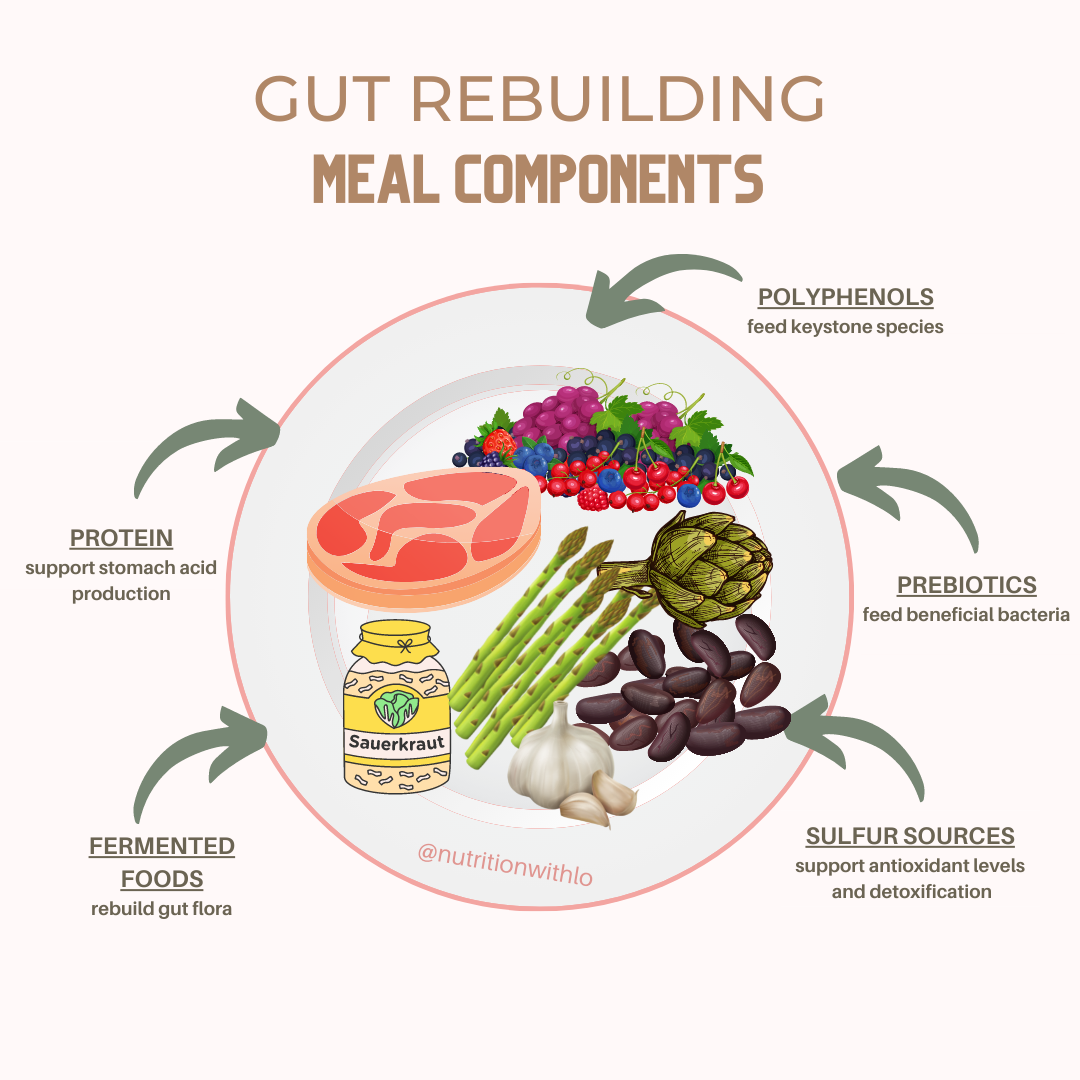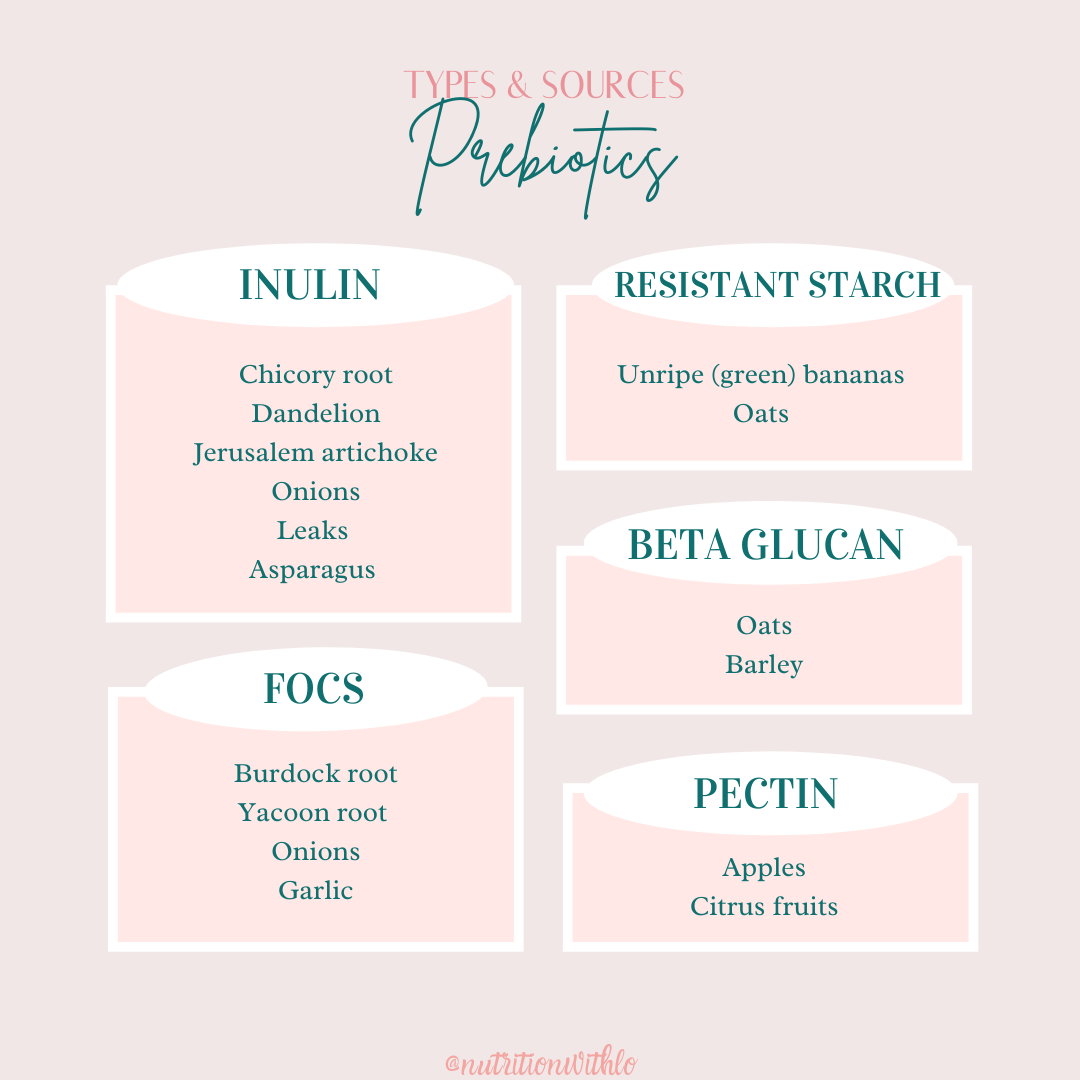In my last blog, I ran you through the what, where and why of probiotics. We chatted about how probiotics support the beneficial bacteria in our guts but that they also rely on other components of our diets to function at their best. Therefore, it’s time to discuss another key component to keeping our guts healthy: prebiotics.

Why
Prebiotics are a group of dietary fibres that support the overall health of the good bacteria in our guts. This dietary fibre is indigestible by the human body so it travels to the lower part of the digestive system where it acts as food for the beneficial bacteria. This causes them to produce nutrients, such as butyrate and acetate, that results in healthier digestion, improves metabolic health and boosts the immune system (1, 2). Prebiotics also help our bodies absorb calcium, reduce constipation, keep the cells lining our guts healthy and reduce the rate at which food spikes blood sugar (3, 4). Pretty handy, huh?!
What
There are different types of prebiotics, all of which can be found in our diets. For example, inulin is a prebiotic that’s found in high amounts within chicory root, dandelion, Jerusalem artichoke, onions, leeks and asparagus (5, 6). Meanwhile, Frutooligosaccharides (FOSs) are found in burdock root, yacon root, garlic and onions, resistant starch in unripe (green) bananas and oats, and beta glucan in oats and barley (7, 8, 9). Meanwhile, apples and citrus fruit are a great source of pectin, Konjac root has glucomannan, and cocoa contains flavonoids that have prebiotic qualities (10, 11).

Where
Whilst we can obtain prebiotics from food and supplements, food sources are superior. This is because wholefoods contain other important vitamins, minerals and antioxidants that can be beneficial to our health.
However, choose your cooking methods wisely if relying on food to obtain your prebiotics; fibre within food can be broken down, and therefore the amount of prebiotics be reduced, by preparation techniques such as boiling. The best way to consume food sources of prebiotics is either raw or lightly steamed.
Eating a wide variety of prebiotics is important to rebuilding and maintaining the gut microbiome. It’s important to note that if you are dealing with gastrointestinal dysfunction, foods rich in prebiotics will cause bloating and GI distress. Unfortunately the very foods that feed our gut also feed bad bacteria when there is imbalance. That’s why it’s so important to test and not continue to eliminate foods from your diet. You can learn more about working with Lauren to get to the root cause of your GI symptoms here.
In health,
Lizzy Cangro
References
- Javier Fernández, Saúl Redondo-Blanco, Ignacio Gutiérrez-del-Río, Elisa M. Miguélez, Claudio J. Villar, Felipe Lombó, Colon microbiota fermentation of dietary prebiotics towards short-chain fatty acids and their roles as anti-inflammatory and antitumour agents: A review, Journal of Functional Foods, Volume 25, 2016, Pages 511-522, https://doi.org/10.1016/j.jff.2016.06.032
- Markowiak P, Śliżewska K. Effects of Probiotics, Prebiotics, and Synbiotics on Human Health. Nutrients. 2017 Sep 15;9(9):1021. doi: 10.3390/nu9091021
- Nishimura M, Ohkawara T, Kanayama T, Kitagawa K, Nishimura H, Nishihira J. Effects of the extract from roasted chicory (Cichorium intybus L.) root containing inulin-type fructans on blood glucose, lipid metabolism, and fecal properties. J Tradit Complement Med. 2015;5(3):161-167. Published 2015 Jan 20. doi:10.1016/j.jtcme.2014.11.016
- Micka A, Siepelmeyer A, Holz A, Theis S, Schön C. Effect of consumption of chicory inulin on bowel function in healthy subjects with constipation: a randomized, double-blind, placebo-controlled trial.
Comments +